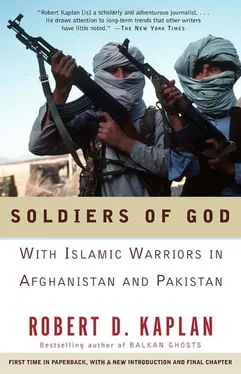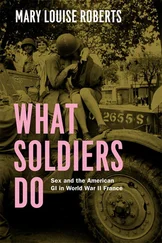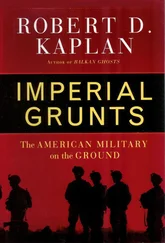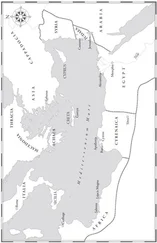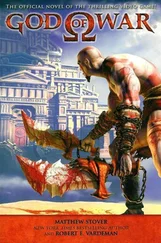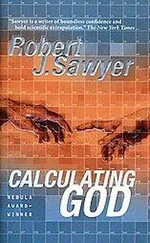A few months later, in 1980, Hamid visited a refugee camp near Quetta. As soon as he entered the camp, hundreds of Popalzai tribesmen gathered around him, smiling. “They thought that just because I was the khans son, I had the power to help them. I felt ashamed, because I knew I was just a naive student who was spending his college years thinking only of himself and his ambition. I was not what they thought I was. My goal from that moment on was to become the man that those refugees thought I was. To become a man like my father.”
The man that Hamid Karzai became was one who never tired of talking about the rich history of his tribe and the region of Kandahar. The story of the founding of the Popalzai… first told to me by Hamid… sounds like one of the archetypal tales in the Book of Genesis.
Abdal, the patriarch of the Abdalis (later the Durranis), died at the age of 105 and was succeeded by Rajar, who in turn passed over his oldest son and picked the younger but smarter Zirak to be headman. Zirak ruled for many years and had four sons. One day, near Kandahar, the family was breaking camp. By then Zirak was over 100 and too old even to move, let alone saddle his horse. He asked his oldest son, Barak, for help. Barak laughed and made fun of his father. The second son, Alik, did the same. The third son, Musa, told his father to get on a horse and follow him. When Zirak was not able, Musa kicked him and told him he must remain behind until the beasts devoured him. Popal, the youngest son, offered to carry his father on his back. Old Zirak never forgot the incident, and when he died at the age of 120, he invested Popal as head of the clan. Thus it was that Popal founded his own branch of the Abdali tribe.
The mythic, elemental quality of the story is enhanced by the fact that, though the origin of the Popalzai is relatively recent… the late fifteenth century… nobody can accurately date when the events took place. It is such stories that, stylistically at least, lend credence to the notion that the Pathans are descendants of the ancient Hebrews. True or not, one could at least say that the desert surrounding Kandahar was to the Pathans what the wilderness of Sinai was to the Hebrews: the seed-ground where an assemblage of tribes grew into a nation. To Hamid Karzai, Kandahar was “the home of our original Afghan culture, the genuine Afghanistan.”
A trip to Kandahar begins in Quetta, the capital of Pakistan’s province of Baluchistan. Quetta and Baluchistan were to the Kandahar region what Peshawar and the Northwest Frontier were to the rest of Afghanistan: a rear base for mujahidin, war correspondents, and relief workers. And because everything about the Kandahar area was wild and exotic, even compared to the rest of Afghanistan, Quetta was wilder and more exotic than Peshawar.
As I looked down from thirty thousand feet on the flight from Islamabad to Quetta, Baluchistan resembled a series of boils and lesions on a scratched, sandpaper surface: the product of volcanic upheavals and tectonic shifts going back two billion years. Once on the ground, I continued to feel lost in space. There was a weird flimsiness to the setting. In 1935, Quetta was wiped out by an earthquake that killed twenty-three thousand people in the city and many more in the desert around it. In the 1980s, everything in Quetta seemed truly temporary, as unstable and prone to violent shifts as the ground I walked on.
The new Quetta was built on the ruins of the old one. The single-level unfinished cement houses looked like a theatrical set that could have been ripped out at any moment from the gray backdrop of hills beyond by blasts of plateau wind.
During the Afghan war, Baluchistan was especially important strategically. It was the only remaining barrier that kept the Russians from reaching the Indian Ocean… the ultimate dream of the czars. Like so many strategic places, Quetta was a shithole. Only in July 1988 was a decent hotel opened. Before that, you stayed at the New Lourdes. To flush the toilet in your room you needed a raincoat and Wellingtons because the water exploded in all directions. The place had no heating and the boiler rarely worked, so during the cold plateau winter, when temperatures dipped below freezing at night, you faced the choice of a cold shower or none at all. The Bloom Star, the only other hotel at the time, was just marginally better.
Baluchistan was the ultimate free-trade zone and smuggler’s haven: an unregulated void of hazy identity set between Iran, Afghanistan, and the Pakistani province of Sind, with its back to the Indian Ocean. Despite the awful accommodations, you could get almost anything in Quetta… heroin, Japanese cameras, cans of Heinz soup, relatively recent copies of Gentlemen’s Quarterly and the Washington Journalism Review.
Even the ethnic identity that gave the province its name was at risk in the 1980s, as the influx of Pathan refugees from Afghanistan tipped the demographic balance against the Baluchis, a people of Middle Eastern origin who speak an Indo-European language similar to Pukhtu. Because Quetta, with a population of 250,000, was one fourth the size of Peshawar, and because Baluchistan was inundated with close to a million refugees from southern Afghanistan, the Afghan influence on Quetta appeared even more dramatic than in Peshawar. Quetta seemed to have become Kandahar, since a large portion of Kandahar’s prewar population now lived in or near Quetta. With its Afghan merchants, Afghan carpet shops, and refugees smoking water pipes, Quetta blurred in my mind with the Kandahar I had briefly known in 1973.
Everything about Quetta had an air of unreliability, and I was apt to distrust much of what I saw and heard.
The first person I met there was Atta Mahmoud, a twenty-eight-year-old refugee from Kandahar, who lured me to his carpet shop. Inside, we sat cross-legged on the floor, sipping cup after cup of green tea. He wore a psychedelic black, green, and gold turban; his eyes were crazed. He implored with his hands as if speaking to a multitude and kept calling me Babà, which means father and is a sign of respect. But there was a fawning quality to his voice; his words had the tone of a sales pitch. Having had previous experiences with carpet dealers in the East, I was deeply suspicious, especially after Atta Mah-moud told me he had worked at the Sunshine Hotel in Kandahar before the war, and had sold drugs there to European hippies.
But Atta Mahmoud wanted to talk about Kandahar, not about carpets. “Kandahar city, Babà, is no more. No more, I tell you. There is not a street or a building standing, Babà. No more nut or apple trees. No bazaars. Just one meter of dust and new paved roads for Russian tanks and security patrols.” This was the first eyewitness account I had heard concerning the destruction of Kandahar. I wanted more specifics, but he was hard to interrupt and his oration soon disintegrated into a mad tirade, much of it incomprehensible. “The only thing you can do with a Russian is slit his throat, Babà… If you don’t want to slit his throat, you are a Communist.”
He casually mentioned that his two small sons had been killed in a Soviet artillery bombardment of Kandahar the year before, in 1986. This seemed so horrible that I didn’t know how to react, or even whether to believe him. I told him I was sorry, and then, in order to break the silence, I asked the price of some of his carpets. But he brushed aside my query, treating it as an insult. He said we could discuss carpets another day. I decided that this man was not after my money and that much of what he told me about Kandahar might actually be true.
Next I wanted to see Zia Mojadidi, who, though related to Sibghatullah Mojadidi of the Afghan National Liberation Front, was not connected with the party. Rather, he was a former faculty member at Kabul University and the local stringer for the Voice of America. Western journalists in Islamabad told me that Zia Mojadidi was a thoroughly professional reporter and the most reliable source of information in Quetta. But his phone was out of order, and the directions to his house were vague: “near the Helper’s High School and the orphanage.” After searching for half an hour and banging on several doors I found him… miraculously, it seemed to me. He looked like a professor, with thick glasses and a courteous, serious way of speaking. The room he took me to was completely bare, save for carpets on the floor. Since he did not show me the other rooms in the house, he gave the impression of living a marginal existence, and this made me uncertain. After twenty-four hours in Quetta, my instinct told me that if a man possessed no furniture, he also possessed no useful information. His precise speech dispelled some of my doubts, however. He did have information, and filled the holes in Atta Mahmoud’s description of Kandahar with hard facts. Basically, Zia Mojadidi, the respected local journalist, backed up the carpet dealer Atta Mahmoud’s story of how the Soviets were destroying Kandahar.
Читать дальше
